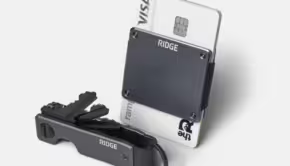Two Misconceptions About The Mobile Wallet
There’s a reason why the U.S. is trailing the rest of the developed world in mobile wallet usage. It’s because the average American doesn’t trust these digital payment systems. They believe old-fashioned cash and credit are a safer way to spend. While there are some legitimate concerns about privacy in a post-Facebook world, they’re outnumbered by the number ofmisconceptions complicating mobile wallet security. Believing the wrong thing can stop you from taking advantage of this new tool, so let’s dismantle two of the biggest myths about the mobile wallet.
Misconception #1: Your personal data is not protected
People are concerned about their online privacy, and rightly so. It’s important to value the security of your personal information, but there’s a line that separates a healthy amount of scepticism and paranoia. Far too many people believe security breaches are inevitable when using a mobile wallet.
As a general rule, trustworthy apps use the latest security techniques to prevent cyberattacks from releasing financial information. The most noticeable defence is tokenization.
Tokenization assigns any account number or PIN a randomly-generated combination of characters (or tokens). Tokens are impossible to crack.Unlike encryption, there isn’t a cypher or mathematical equation that links the original number to the random characters. Tokenization acts as a middleman between your financial accounts and the merchant. When the merchant runs your payment, the POS system doesn’t see the original number. It only ever interacts with this random token.
Tokenization isn’t the only way the mobile wallet protects your information. Companies use a combination of encryption, multi-factor authentication, 3-D secure, and other protection methods to keep your identity safe. They also follow some of the same security regulations as VISA and MasterCard, making it one of the safest ways to shop.
Misconception #2: There are hidden fees and other charges
It’s easy to pay hundreds of dollars in hidden fees if you aren’t careful, but this isn’t specific to the mobile wallet. Every industry has companies that swindle their customers from money by hiding charges in purposefully complex legal language or exhaustive fine print that they’re unlikely to read. From cell phone companies and gyms to car dealerships and traditional banks, there are many companies that prey on the uninformed.
You can avoid those apps that mean to do you harm by sticking to the App Store and Google Play Stores. These platforms weed out predatory apps that have misleading terms and conditions or obvious security issues.
You also have a responsibility to read these terms and conditions to ensure they don’t hide any fees. Some companies help make this task easier for you, like MoneyKey. They’ve removed many complexities from the borrowing experience to provide simple, easy-to-understand rates, terms, and conditions. There are no hidden fees when you get a line of credit loan or short term loan to help pay for necessary expenses.
An eye towards security is essential for any online services, but don’t let yours be swayed by gut feeling over facts. There are a lot of misconceptions about the mobile wallet that can scare people away from using it when in reality, it can be a safe and easy way to spend, borrow, and save.

















